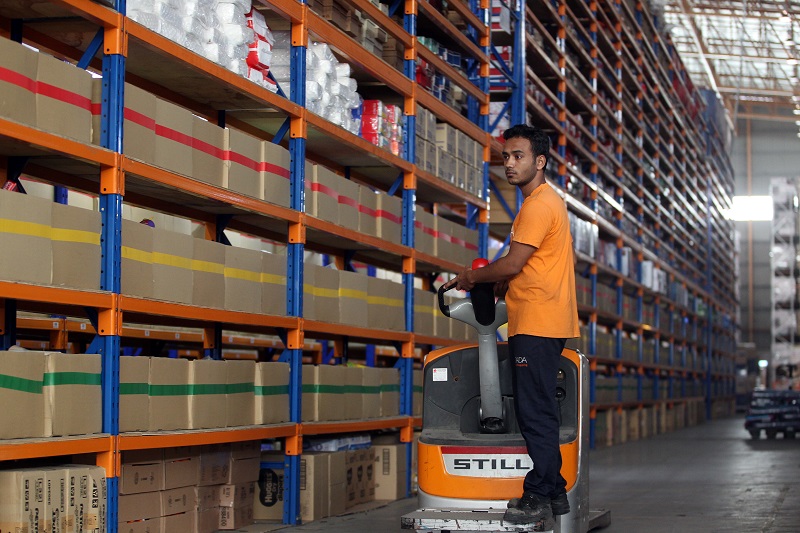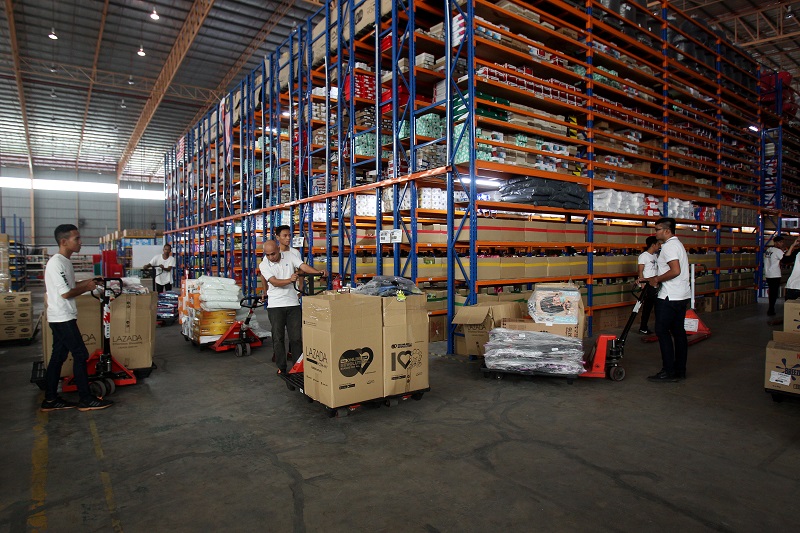
CEO of Lazada, Christophe Lejeune (Photo: Kenny Yap/The Edge)
If you have shopped online in Malaysia before, there is a good chance at least one of your purchases was from Lazada — the ultimate online marketplace where one can acquire pretty much anything. From sports equipment to sundry needs, clothing and accessories to computers and electronics — with about 40,000 sellers serving the needs of 58 million customers in a total of 12 product categories — this pioneering e-commerce company is redefining the retail landscape across the region, one online purchase at a time.
Although the brand is ubiquitous now when talking about the idea of online shopping in Malaysia — if it’s not sold on Lazada, is it even real? — the company’s history is relatively short. It was only in 2012 that German incubator Rocket Internet founded Lazada in Singapore with the intention of establishing Amazon’s business model in Southeast Asia to take advantage of the then nascent online consumer market. By January the following year, it had raised four rounds of funding and by 2014, was available in six countries across the region. China’s Alibaba group announced it had taken a controlling interest of 51% in 2016, and in 2017, raised its stake to 83%. One of Alibaba’s 18 founders, Lucy Peng, is now Lazada’s global CEO.
In Malaysia, the company is headed by Frenchman Christophe Lejeune. Although he is new to the CEO seat, he is on familiar ground — he has been chief commercial officer since 2015 and took over as head honcho when Hans-Peter Ressel was promoted to group chief international officer. Lejeune brings with him a great deal of experience relevant to the online retail game — he was project leader at Boston Consulting Group’s offices here and in France and was also the chief financial officer of Lagardere Services, a leading international group with expertise in travel, retail and distribution.
At Lazada, he watched the company grow by leaps and bounds as the online retail market rapidly matured. As consumers were becoming increasingly sophisticated, Lazada began attracting high-net-worth vendors as well. Today, there is hardly anything you cannot get on Lazada, save for fresh produce.

Lejeune knows this for a fact — he is both company CEO and a regular customer, having racked up 500 orders in the last two years. “As parents of two young children, my wife and I don’t always have the time to go shopping, so it’s great that I can get certain essentials like diapers and infant formula delivered,” he says.
Indeed, baby products — which are in the fast-moving consumer goods sector — have been a huge source of growth for the company in the last few years. For example, 10% of the disposable diapers sold in Malaysia were through Lazada and items like milk bottles, infant formula and baby clothes were also popular buys. Clearly, busy mothers with little time to spend at a physical store have found salvation in e-commerce platforms like this one, with an arsenal of products that serve almost all of their needs.
Fashion as a category has also grown, and is something Lejeune hopes to grow over time. He wants to work with local designers, having them showcase their creations on Lazada. What needs to be done first is to adapt Lazada’s presence a little — currently, the platform is not quite the go-to place for fashion. The pace setter is Zalora. Lejeune sees this as a huge opportunity, especially since the company enjoys a great deal of cross-border business — this means consumers will have access to creations by top designers across the region, and vice versa.
“Together with Alibaba, we are rolling out tools so you can directly engage with the brand you like. This is where the Alibaba model is different from Amazon, which is not very strong in fashion anyway,” Lejeune observes. “These tools are key to getting into selling fashion online, in addition to our fundamentals — it’s so easy to shop on Lazada and to return your shopping.”
Indeed, it is Lejeune’s experience as a buyer that has inspired his main drive as CEO — to continually enrich the customer experience and to add more brands and sellers. A large part of the former lies in the enhanced customisability of Lazada’s mobile app, which offers different products to individual users. Using an algorithm that is based on a customer’s browsing behaviour and past purchases, Lejeune says the app will only show products that customers actually want or are interested in.
“When I was chief commercial officer, I was looking at sales and how we could increase the number of sellers and the number of brands. Now, my specific focus is the customer experience. We are one of the best websites in Malaysia in terms of making customers happy, but we need to be better. As a regular customer I can see where and how we can be better. We need to be faster and more convenient and, essentially, make shopping and selling easier,” Lejeune says.

Another one of his mandates is to make Lazada Malaysia one of the nation’s most desirable employers. It is committed to providing the current crop of staff — whom he is unabashedly proud of — the best possible opportunities to grow and develop. At the point of hire, candidates are selected for their sense of entrepreneurship, with those who are analytical and data-driven and have a passion for the job having the edge.
“The existing talent we have is really amazing. I am so privileged to be working here because I am working with some of the best people in Malaysia, but I want to grow this talent pool to build a community of this country’s next generation of business leaders. I want Lazada to be the company where people come to learn, where people are innovative. I want more women in upper management and I am committed to providing the support for that to happen.”
The staff have many role models, that’s for sure. Alibaba has 20 years of experience in e-commerce and it boasts some of the most outstanding talents in the industry, driving the company and its subsidiaries forward. Post-acquisition, several Alibaba engineers from various departments have spent time at Lazada Malaysia to share their expertise in order to enhance the buying and selling experience. “After 20 years, it’s amazing to see the passion the management of Alibaba have for their own people and we want to learn from that,” Lejeune observes. “Lucy was here recently and spent time with our own staff and with our sellers — the company’s strength is not just technology, but also people.”
Lejeune has his work cut out for him. Lazada expects to register a 35% surge in business participation from offline retailers this year, and a projected increase of more than two million customers for 2018, with a 30% increase in frequency of monthly online purchasing. Opportunities abound for the company as e-commerce becomes more and more popular every day — it’s only a question of how well the company is able to harness it.
This article first appeared on May 28, 2018 in The Edge Malaysia.


